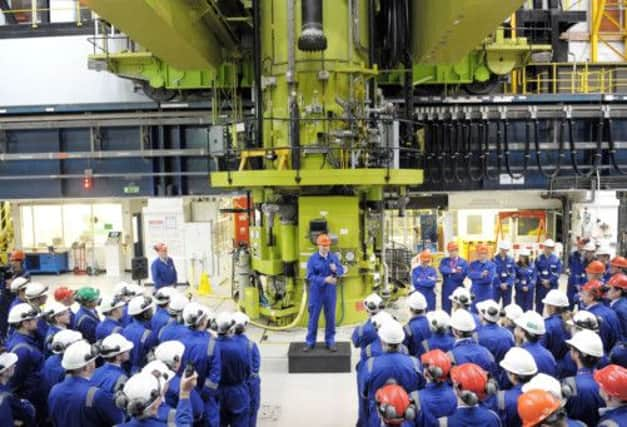No bill hikes if nuclear costs rise vow


Ed Davey said he had ensured a value for money deal in which consumers would “gain share” but never “pain share” in the event of operational costs changing from current forecasts. The agreement with French-owned EDF Energy will see Hinkley Point C begin operating in 2023. But ministers are likely to face criticism over the price that will be paid for electricity produced at the Somerset site.
Mr Davey said of the agreed strike price, which will be set at £89.50 or £92.50: “We’ve got a good figure through hard, tough negotiations.”
Advertisement
Hide AdAdvertisement
Hide AdHe added: “The good news is we have negotiated a gain share for the consumer, the consumer has no pain share.
“If the construction costs go higher, that construction risk is taken by the developer, EDF; if the construction costs are lower, the consumer will benefit.”
Mr Davey’s announcement on the agreement is subject to the final investment decision by EDF, expected next summer.
Prime Minister David Cameron said: “This deal means £16 billion of investment coming into the country and the creation of 25,000 jobs, which is brilliant news for the South West and for the country as a whole.”
But Greenpeace executive director John Sauven said: “Hinkley C fails every test – economic, consumer, and environmental. It will lock a generation into higher energy bills via a strike price nearly double the current price of electricity, and it will distort energy policy by displacing newer, cleaner, technologies that are dropping dramatically in price.”